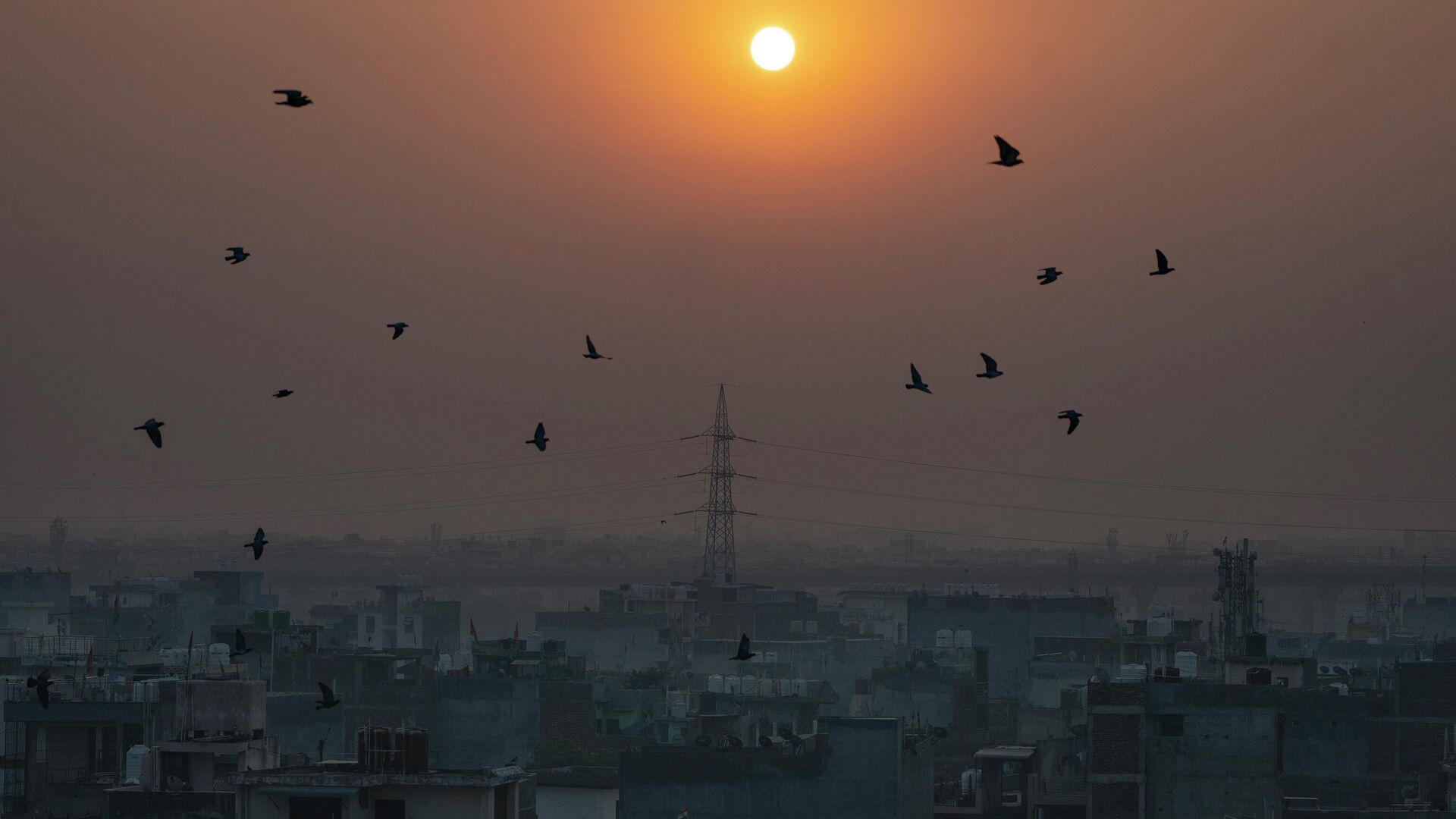https://sputnikglobe.com/20221114/cop27india-accuses-rich-countries-of-enormous-failure-over-climate-finance-for-developing-nations-1104114967.html
COP27:India Accuses Rich Countries of 'Enormous Failure' Over Climate Finance for Developing Nations
COP27:India Accuses Rich Countries of 'Enormous Failure' Over Climate Finance for Developing Nations
Sputnik International
While India is the world’s third-biggest emitter of greenhouse gases, its per capital emissions were 2.4 tCO2e (tonne carbon dioxide equivalent) in 2020, far... 14.11.2022, Sputnik International
2022-11-14T16:11+0000
2022-11-14T16:11+0000
2022-11-15T06:52+0000
india
cop27 in egypt
climate change
greenhouse gas
paris climate deal
https://cdn1.img.sputnikglobe.com/img/07e6/0a/19/1102601844_0:160:3073:1888_1920x0_80_0_0_16b19c2259c1d2efded89d53a739a71c.jpg
India’s Minister for Environment, Forest and Climate Change Bhupender Yadav has hit out at the richer countries over their collective failure to fulfill climate financing commitments for developing nations. The financing was earmarked to facilitate the transition to renewable and other greener forms of energy.Yadav stated that it was the rich countries that have fallen short of fulfilling their commitment to bring down their greenhouse gas emissions (GHGs): “If goalposts are changed constantly, it will not yield results but only words and promises,” stated the Indian minister.The rich countries agreed to jointly provide $100 billion to low and middle-income countries to meet energy transition goals at the COP15 Summit in Copenhagen in 2009.At the COP21 Conference in Paris in 2015, richer countries reiterated their $100 billion aid pledge and all countries also agreed to limit global warming below 1.5 degrees Celsius of pre-industrial levels.Yadav said that it was still too early to consider revising the goals set out at the Paris climate conference as implementation has “just begun”.“The first global stocktaking is underway and will conclude next year. So why is there any need to start talking of the adequacy of the provisions of the Paris Agreement?” he questioned.Yadav said that it was crucial for developing nations to have access to financial resources and technological expertise in order to achieve “low-carbon development”.He stated that “just transition” in developing countries was about facilitating “low-carbon” development rather than forcing the low and middle-income nations to decarbonize before their emissions peak as in the case of the rich industrialized nations.Yadav argued that fossil fuels would continue to be part of the energy mix of the developing nations in order to protect people’s “energy security”.He also warned that progress on achieving the United Nations-endorsed Sustainable Development Goals by 2030 risked being stalled if low and middle-income countries were pressed by the rich nations to transition to cleaner energy sources without suitable technological and financial wherewithal.The goals call for eradicating extreme poverty, hunger and ensuring access to clean and affordable energy for every person by 2030.
Sputnik International
feedback@sputniknews.com
+74956456601
MIA „Rosiya Segodnya“
2022
News
en_EN
Sputnik International
feedback@sputniknews.com
+74956456601
MIA „Rosiya Segodnya“
Sputnik International
feedback@sputniknews.com
+74956456601
MIA „Rosiya Segodnya“
india, cop27 in egypt, climate change, greenhouse gas, paris climate deal
india, cop27 in egypt, climate change, greenhouse gas, paris climate deal
COP27:India Accuses Rich Countries of 'Enormous Failure' Over Climate Finance for Developing Nations
16:11 GMT 14.11.2022 (Updated: 06:52 GMT 15.11.2022) While India is the world’s third-biggest emitter of greenhouse gases, its per capital emissions were 2.4 tCO2e (tonne carbon dioxide equivalent) in 2020, far below that of the global average of 6.3 tCO2e. On the other hand, the per capita emissions in the US stood at 14 tCO2e in 2020, while those of China were 9.7 tCO2e.
India’s Minister for Environment, Forest and Climate Change Bhupender Yadav has hit out at the richer countries over their collective failure to fulfill climate financing commitments for developing nations. The financing was earmarked to facilitate the transition to renewable and other greener forms of energy.
“The failure to deliver financial resources to developing countries is an enormous failure. Calling for ambition from developing countries is not meaningful if the time required from low-carbon development is not recognized,” Yadav remarked. His comments came during an intervention at a high-ministerial roundtable on pre-2030 mitigation at the Conference of the Parties of the United Nations Framework Convention on Climate Change (UNFCCC), or COP27 Summit, in Egypt.
Yadav stated that it was the
rich countries that have fallen short of fulfilling their commitment to bring down their greenhouse gas emissions (GHGs): “If goalposts are changed constantly, it will not yield results but only words and promises,” stated the Indian minister.
The rich countries agreed to jointly provide $100 billion to low and middle-income countries to meet energy transition goals at the COP15 Summit in Copenhagen in 2009.
At the COP21 Conference in Paris in 2015, richer countries reiterated their $100 billion aid pledge and all countries also agreed to limit global warming below 1.5 degrees Celsius of pre-industrial levels.
Yadav said that it was still too early to consider revising the goals set out at the Paris climate conference as implementation has “just begun”.
“The first global stocktaking is underway and will conclude next year. So why is there any need to start talking of the adequacy of the provisions of the Paris Agreement?” he questioned.
Yadav said that it was crucial for developing nations to have access to financial resources and technological expertise in order to achieve “low-carbon development”.
He stated that “just transition” in developing countries was about facilitating “low-carbon” development rather than forcing the low and middle-income nations to decarbonize before their emissions peak as in the case of the rich industrialized nations.
Yadav argued that
fossil fuels would continue to be part of the energy mix of the developing nations in order to protect people’s “energy security”.
He also warned that progress on achieving the United Nations-endorsed Sustainable Development Goals by 2030 risked being stalled if low and middle-income countries were pressed by the rich nations to transition to cleaner energy sources without suitable technological and financial wherewithal.
The goals call for eradicating extreme poverty, hunger and ensuring access to clean and affordable energy for every person by 2030.



